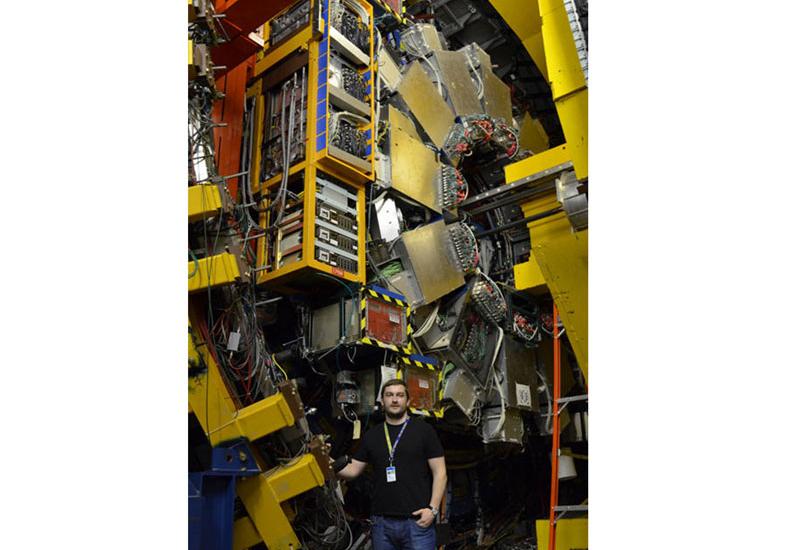Recently two outstanding events in the scientific world took place. On October 3, 2013 Ukraine reached the agreement on the associated membership with the largest international scientific center that is famous as CERN - the Council of Europe on nuclear researches (Conseil Europeen pour la Recherche Nucleaire). On October, 8 Belgian professor Francua Angler and professor of the Edinburgh university Peter Higgs were awarded the Nobel Prize on physics “For theoretical opening of the mechanism, which serves our understanding of an origin of mass of subatomic particles and recently confirmed by identification of anticipated fundamental particle in the course of ATLAS and CMS experiments on the Large Hadron Collider in CERN”.
The Large Hadron Collider (LHC) is situated in a tunnel about 27 kilometers long at a depth of 100 meters. In experiments more than 10 000 scientists from nearly 100 countries of the world take part. Thanks to the new status of Ukraine our scientists also will be able to take full part in these experiments.
Earlier our scientists took part in the international projects on physics of elementary particles and high energy physic. Among pioneers there is the graduate of Institute of Physics and Technology of NTUU “KPI” Egor Aushev who has been working in the largest German development center of physics of particles of DESY (Deutsches Elektronen-Synchrotron – “The German electronic synchrotron”) for three years. He was repeatedly invited in the USA for performances with reports at seminars which take place in Fermi National Accelerator Laboratory (Fermilab) that proves the success of the young scientist.
The international cooperation for the Ukrainian scientists is an opportunity to pursue modern science, to work at expensive installations and equipment, to gain experience working with the leaders of world science, to participate in the international forums, conferences, to conduct researches under the leadership of world famous professors and the Nobel winners.
Egor Aushev is a shining example of the young and perspective specialist who is invited on very attractive terms to work in scientific laboratories of the developed countries. The university can give to the specialists a good education which is internationally acknowledged. At the same time the state should pay attention to talented youth and to help it with formation, to give the chance to realize itself. Expenses for education and science will pay off repeatedly due to the state-of-the-art development and production of competitive hi-tech products.

